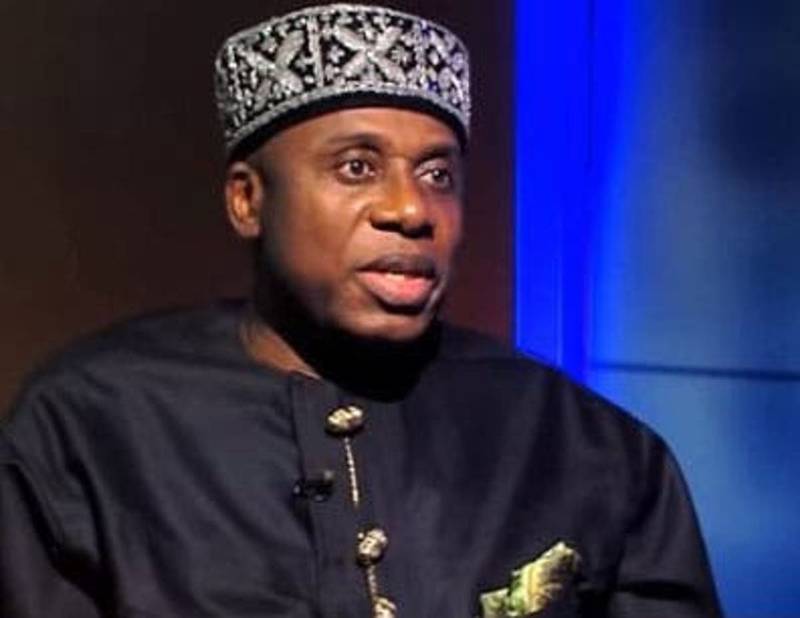By Myke Uzendu, Abuja
The Minister of Transportation, Hon. Rotimi Amaechi has stressed that a functional transportation system is of utmost importance for any nation that intends to earn the full benefits of the African Continental Free Trade Agreement (AfCFTA).
The Minister made the disclosure on Monday in Abuja at a Two-Day international conference organised by the Nigerian Institute of Transportation, (NITT), in collaboration with the Ministry of Transportation with the theme, “The role of transportation in the implementation of African Continental Free Trade Area”,
Amaechi who was represented by the Minister of State for Transportation, Senator Gbemisola Saraki, commended the present administration for their ambition investments in transportation infrastructure especially the railway since in 2015.
According to the Minister, “The transportation sector is the most critical in implementing trade facilitation, enhancing regional integration and key to every other AfCFTA protocol. Hence, the Nigerian government has embarked on huge transport infrastructure investment across the country to ensure efficiency in the transportation sector. These interventions include massive construction of roads, rail lines with access roads, inland water ports, seaports, new terminals in existing ports, dry ports with access to rail and roads, inland container depots/freights all geared towards building a modern and efficient transportation system that guarantees sustainable socio-economic development of Nigeria, regional integration and trade liberalization,”.
“Transportation and AfCFTA are like Siamese twins as they are intricately linked. Transportation provides the vehicle through which the major objective of AfCFTA thrives; that is, creating a single continental market for goods and services with free movement of businesses, persons and investments, promoting regional and continental integration, market access and resources reallocation across sectors and countries.”
Amaechi stressed that the Buhari led government is making concerted efforts at improving intermodal transportation and trade facilitation by linking major seaport ports in the country with rail line, adding that with the Apapa Port Complex completion, goods will move from the ports to the dry port complexes in Ibadan while Kaduna and Kano bound goods will be moved to either Kaduna or Dala dry ports.”
He reiterated the commitment of the Ministry to improveing digital infrastructure “by automating train, marine and road operations, completing ongoing transport projects and upgrade through the completion and making operational the Abuja – Kaduna, Lagos-Ibadan, Itakpe – Ajaokuta – Warri standard gauge rail lines; rehabilitation of narrow-gauge lines, groundbreaking of the Kano-Maradi rail lines, commissioning of the deep blue sea project, commencement of the wreck removal exercise”; among others.
He noted that under his watch, the Ministry is “making giant strides to protect rail infrastructure and other infrastructures in order to provide an enabling and competitive environment.”
Adding her personal remarks the Honourable Minister of State for Transportation, Senator Saraki pointed out that that the primary objective of the African Continental Free Trade (Area) Agreement is to create a single continental market for goods and services, ensuring free movement of businesses, persons and investments and paving way for accelerated economic growth and inclusive shared prosperity amongst African countries.
To realize these lofty goals, Saraki said the National Action Committee, NAC, was constituted to coordinate the activities of Ministries, Departments and Agencies, MDAs, private sector and other stakeholders to successfully execute the AfCFTA readiness interventions.
The federal government, she noted, has upgraded the road stock “by deploying innovative funding approaches for strategic road projects which include: the Presidential Infrastructure Development Fund, PIDF, which is investing over a billion dollars in three flagship projects including the Lagos-Ibadan Expressway, the Second Niger Bridge, Abuja-Kaduna-Zaria-Kano Expressway and the Highway Development and Management Initiative, HDMI.”
Also in his welcome address, Director General of NITT, Dr. Bayero Farah said Transport infrastructure is widely seen as an enabling industry that facilitates national, regional and international integration and trade, stressing that “an effective transport system promotes competitiveness, market accessibility and economic growth.”
He noted that Nigeria must begin to take advantage of being the largest economy in Africa to make the people benefit from a developed transportation infrastructure.
The event was attended by top dignitaries, stakeholders in the transportation sector as well as government officials including Dr. Magdalene Ajani, Permanent Secretary, Federal Ministry of Transportation.
END



